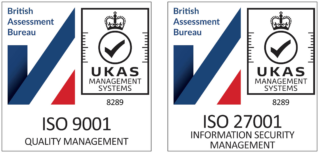ID scanning system thwarts fraud attempt for Fluent Money

Fluent Money, the UK’s largest secured loan distributor, recently thwarted an attempt by a fraudster to obtain a loan using a fake driving licence thanks to electronic ID verification.
In this blog, we talk to Tim Wheeldon, COO, and Stuart Almond, Group Compliance Director at Fluent Money about why they introduced ID scanning technology and how it works in their business.
Can you tell us more about Fluent Money?
Tim Wheeldon (TW): “Fluent Money is the UK’s largest secured loan distributor working through intermediaries and selected partnerships. We were one of the first businesses in our sector to be fully authorised by the FCA and have put compliance, transparency and service to clients at the heart of how we operate. Our definition of clients also extends to our lending partners and we always try to ensure that we are sending them cases with which we are completely comfortable.”
Why did you decide to introduce electronic identity scanning?
TW: “To be honest. the practice of manual checking documents by eye alone and certifying them is just not tenable in the 21st century and I believe it passively encourages fraudsters to target the secured loan sector.
We processed a case which was proved, after completion, to have been based on a fraudulent document. It was a clear case of identity fraud and it highlighted the shocking fact for us that our thorough, but manual, checks of ID documents were no match for modern forgeries. It was then that we made the decision to research the market to find the technology to counter this growing threat and opted for Trust ID’s scanners.”
How do you use the ID scanning technology in your business?
Stuart Almond (SA): “We ask our customers to send in original documentation, as we take financial crime and fraud seriously. In order to be absolutely confident in the ID documents we receive, we invested in the TrustID technology to give us some robust reassurance that those documents are genuine.”
TW: “All original identity documents are scanned on receipt and thanks to the technology, we have already been able to turn away cases which would have harmed our lending partners.”
What benefits have you seen since introducing electronic checks?
TW: “The main thing is that we can now offer peace of mind to our lending partners and introducers; we can reassure lenders that our service is not only the best, but also that we are doing everything in our power to protect all of our partners from the increasingly pernicious threat of fraud.
The system is quick, accurate and effective and its integration into our business is seamless.”
SA: “If we have queries over documents, we can resolve those queries quickly and efficiently by accessing the help team at TrustID. And we can also act quickly and appropriately when we have been in receipt of documents whose authenticity is in doubt.”
TW: “And recently, we were able to stop a loan application made by a fraudster using a fake driving license. It was an application for £40,000 which had passed all the ‘standard’ checks but our system flagged up the licence and stopped the application going through”
Would you recommend ID verification technology to other businesses in the Finance sector?
SA: “Definitely: the ID scanning system just gives us confidence that we are not inadvertently being used for suspicious or fraudulent transactions and it’s really quick and easy to use”
TW: “Without hesitation. The Trust ID scanners are easy to use and provide a simple and fool proof means of ensuring that the documentation being presented is genuine. No one wants to encourage fraudsters but currently there is a systemic weakness in the way in which documentation is accepted as genuine.
Hopefully, our example will help lenders and fellow distributors to amend their requirements and close this loophole for good.”
How does Fluent Money use ID checks?
Find out how investing in an ID scanning solution helped Fluent Money check documents confirming identity requested by lenders.
Sign up to receive updates
Receive notifications from TrustID direct to your inbox. Simply fill out your email address in the form below.
Want to find out more?
We’d be really happy to chat through your requirements and offer advice on the best service for your business.
Tel: 0118 466 0822 or email us.
Request a callback


